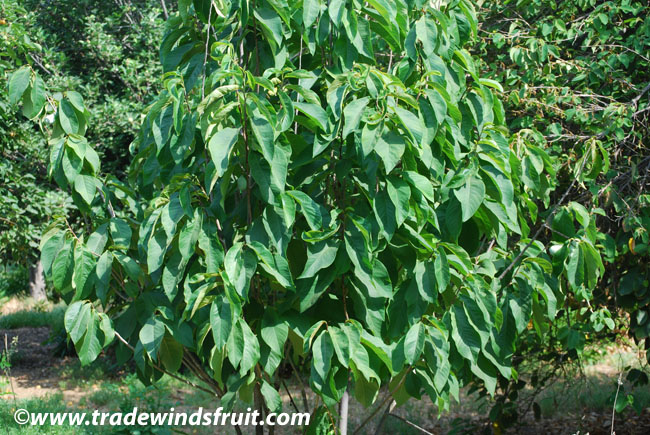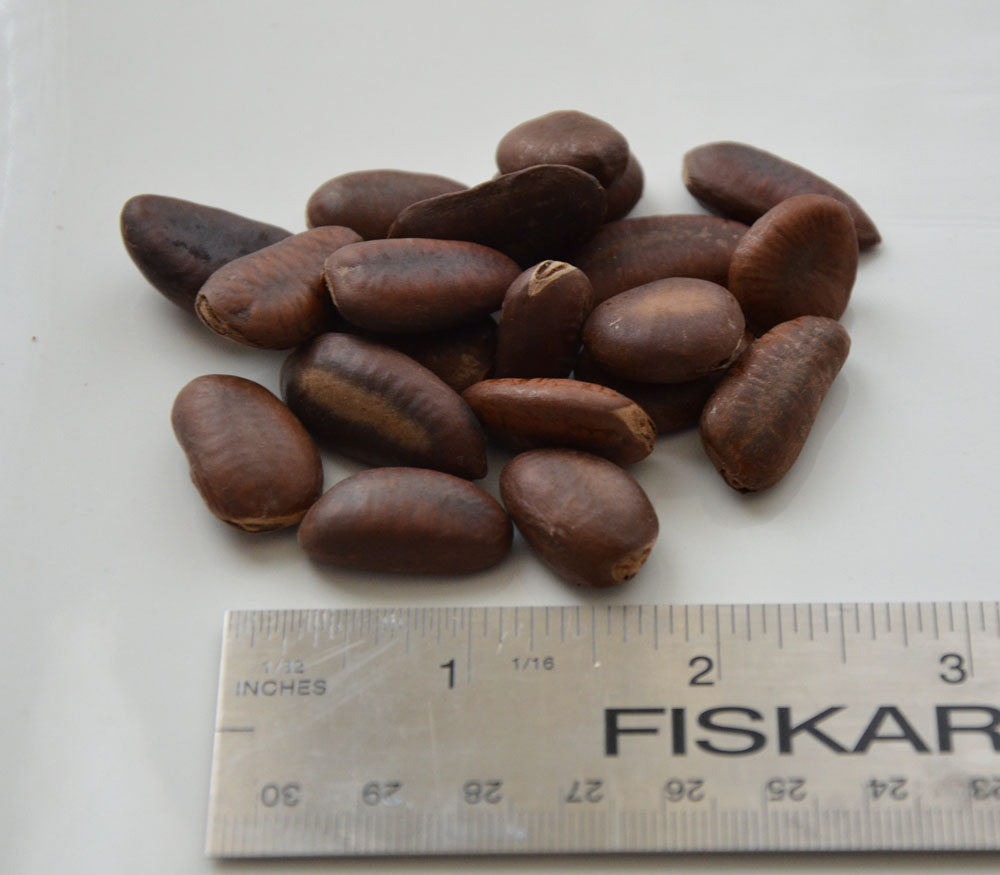- Home »
- Information »
- Pawpaw
Pawpaw
Asiminia triloba
The largest native North American fruit, the pawpaw has a soft, creamy texture and a flavor reminiscent of a custardy banana-mango. Fruits do not store or ship well, likely resulting in the scarcity of the pawpaw in markets.
Seed Availability
Seeds are not available for the Pawpaw. Please visit our seed store to view current selections. Seeds were last available in October 2019.
Description
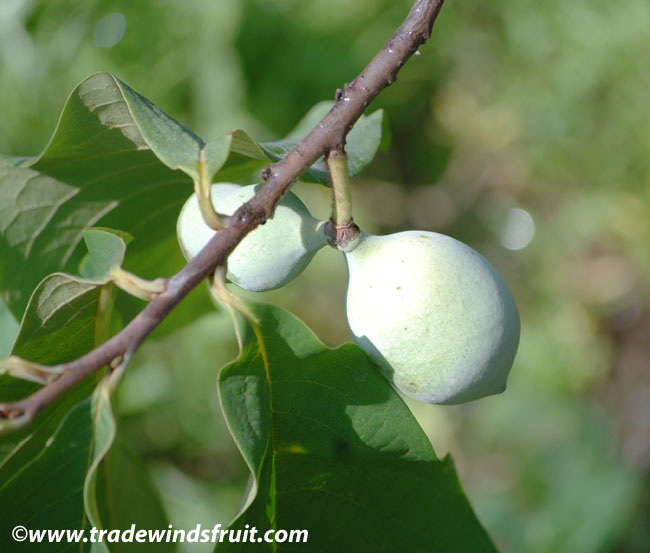 Low growing tree, usually to 15-20ft, but occasionally to 30ft.
Low growing tree, usually to 15-20ft, but occasionally to 30ft.
Hardiness
Hardy to -25F. Sunset Zones: 2-9, 14, 18-21, 28-41 USDA: 5-9
Growing Environment
Pawpaws grow best in climates recieving some frost, and need at least 400 chilling hours to flower and set fruit. They require regular watering, particularly during spring and summer months. Trees seem to do fine in both sunny, and part-shade locations. Paw paw's need cross pollination for full fruit set and also benefit from hand pollination in areas without adequate natural pollinators.
Propagation
By seeds. The numerous named varieties are propagated by grafts.
Germination Info
Please note that seeds are best stored with moist-cold stratification (e.g. the refrigerator). Paw Paw seeds should be cold stratified for up to 2-3 months prior to planting. Optional: Upon finishing cold stratification, soak seeds for 24 hours in warm water to attempt to break dormancy.
Then, plant in warm, moist and well drained soil kept at 70-80F. Protect seedlings from direct sunlight, low humidity and very high temperatures.
Estimated germination time under optimal conditions: 4-8 months. Seeds can be difficult to germinate.
Uses
The fruits are typically eaten fresh. They can also be used to make preserves, ice cream, and a variety of other desserts.
Native Range
Wild throughout the southeastern United States, with some populations reaching as far north as southern Canada. A native U.S. fruit, the pawpaw will fruit in most locations of the United States, although drier and Mediterranean climate areas may need additional watering support.
Additional Pictures
Related Species
| Annonaceae | |||
 |
Annona cacans Araticum Cagao |
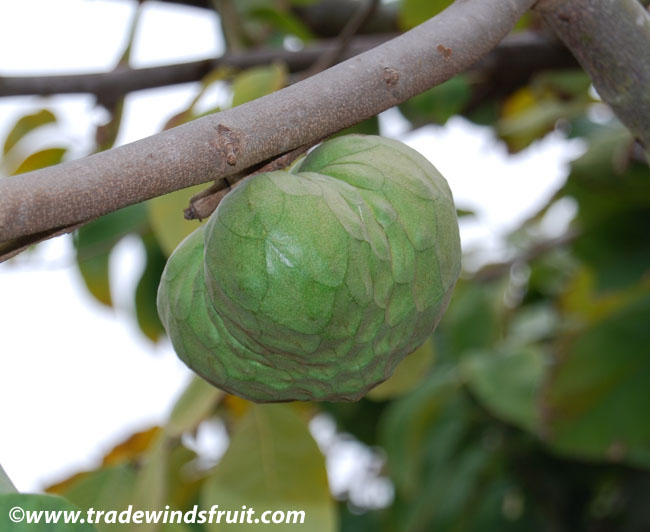 |
Annona cherimola Cherimoya |
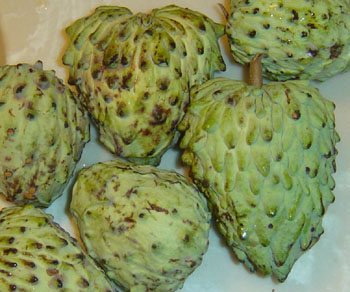 |
Annona cherimola x squamosa Atemoya |
 |
Annona cornifolia Annona cornifolia |
 |
Annona crassiflora Marolo |
 |
Annona diversifolia Ilama |
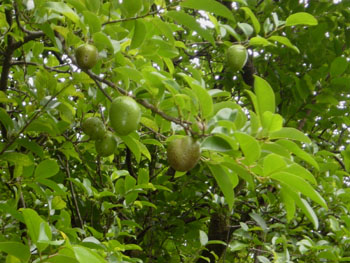 |
Annona glabra Pond Apple |
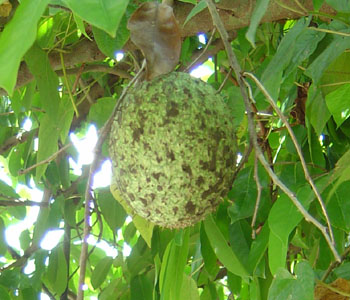 |
Annona montana Mountain Soursop |
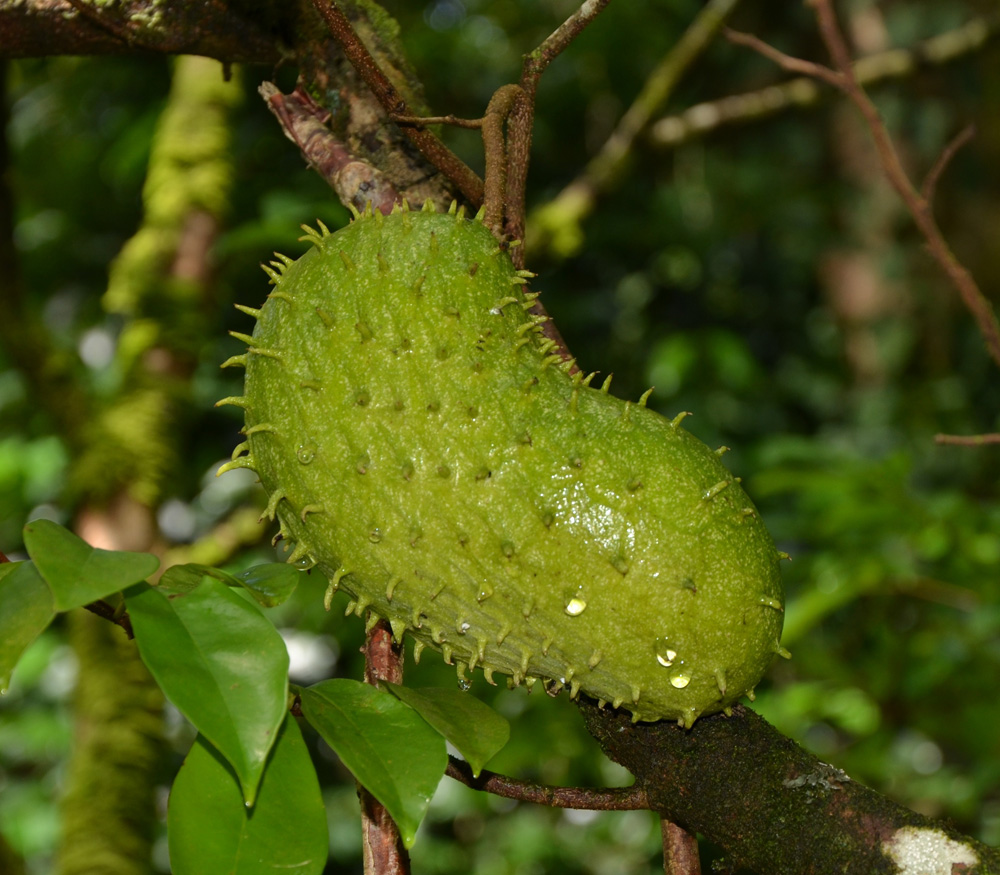 |
Annona muricata Soursop |
 |
Annona paludosa Annona paludosa |
 |
Annona purpurea Soncoya |
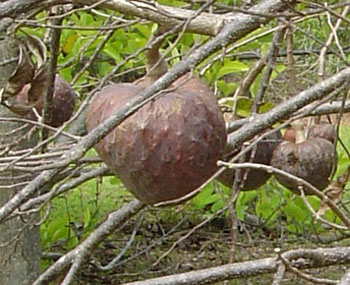 |
Annona reticulata Custard Apple |
 |
Annona salzmannii Beach Sugar Apple |
 |
Annona scleroderma Poshe-te |
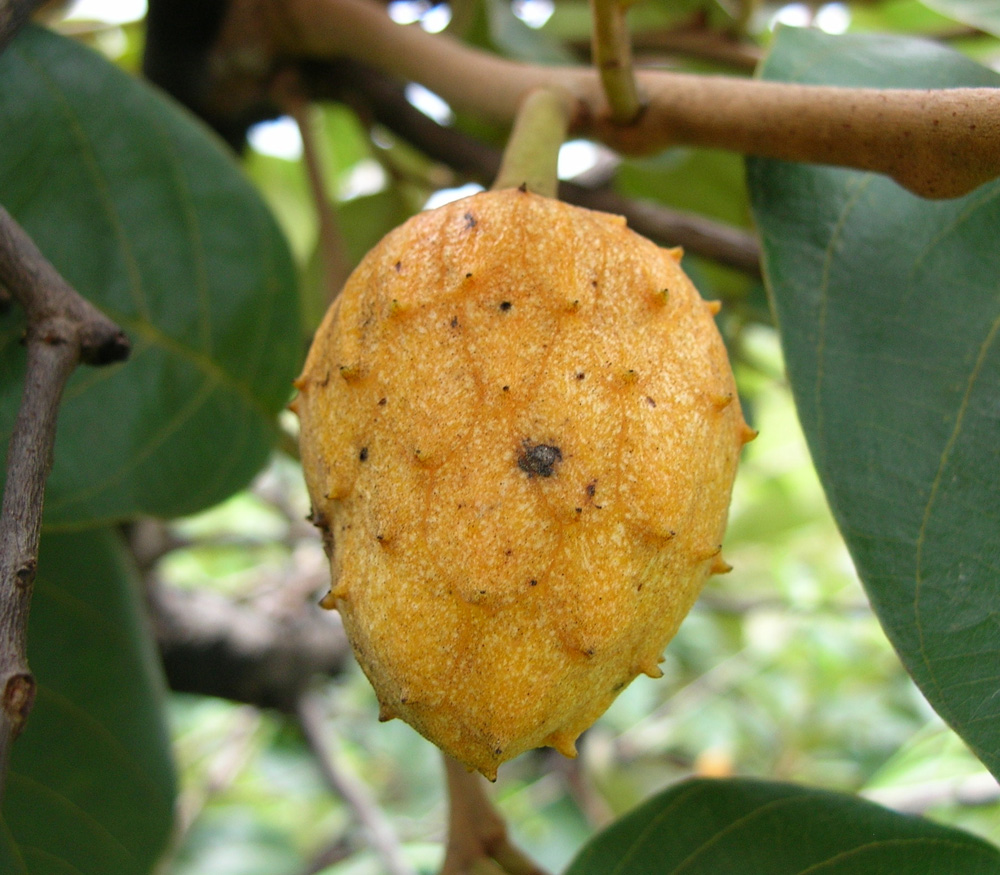 |
Annona senegalensis Wild Custard Apple |
 |
Annona sericea Annona sericea |
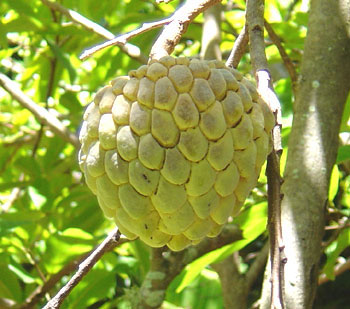 |
Annona squamosa Sugar Apple |
 |
Anonidium mannii Junglesop |
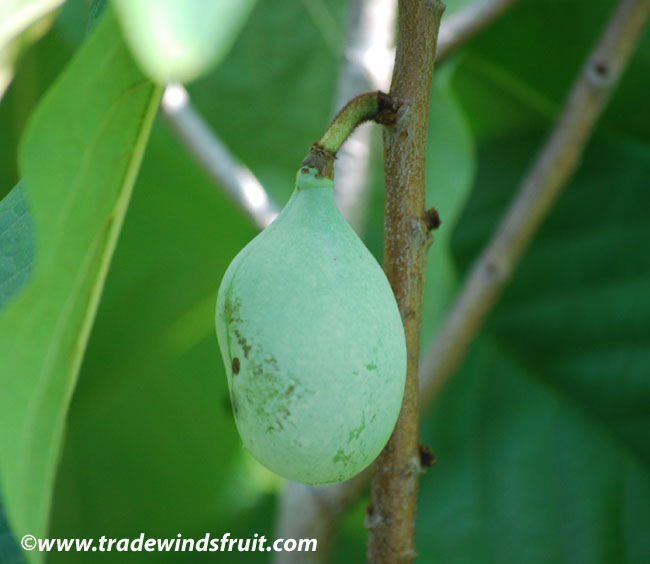 |
Asiminia triloba Pawpaw |
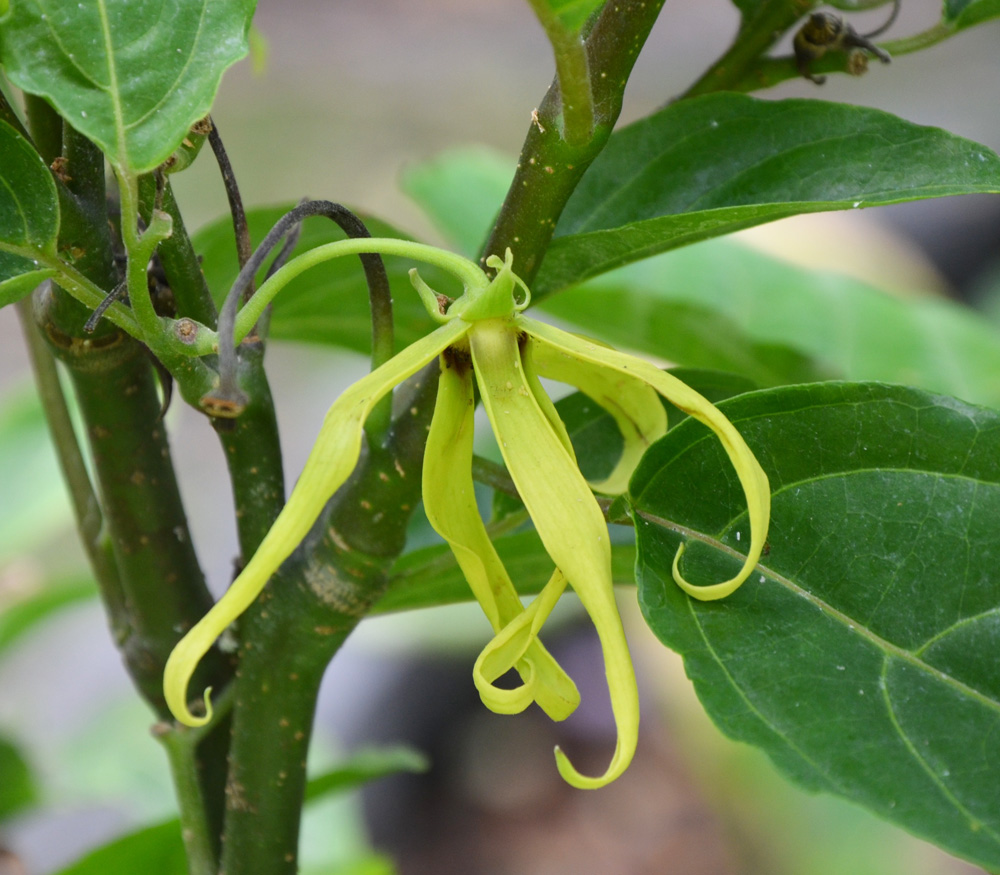 |
Cananga odorata Ylang Ylang |
 |
Duguetia lanceolata Pindaiba |
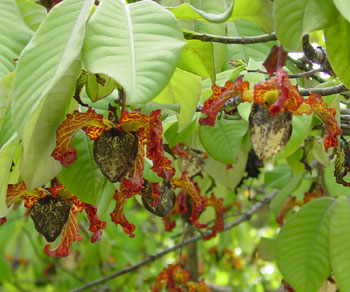 |
Monodora myristica Calabash Nutmeg |
 |
Porcelia macrocarpa Monkey Banana |
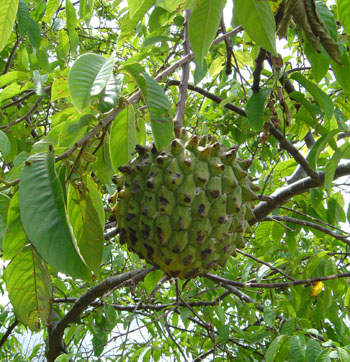 |
Rollinia deliciosa Biriba |
 |
Rollinia sylvatica Aractium do Mato |
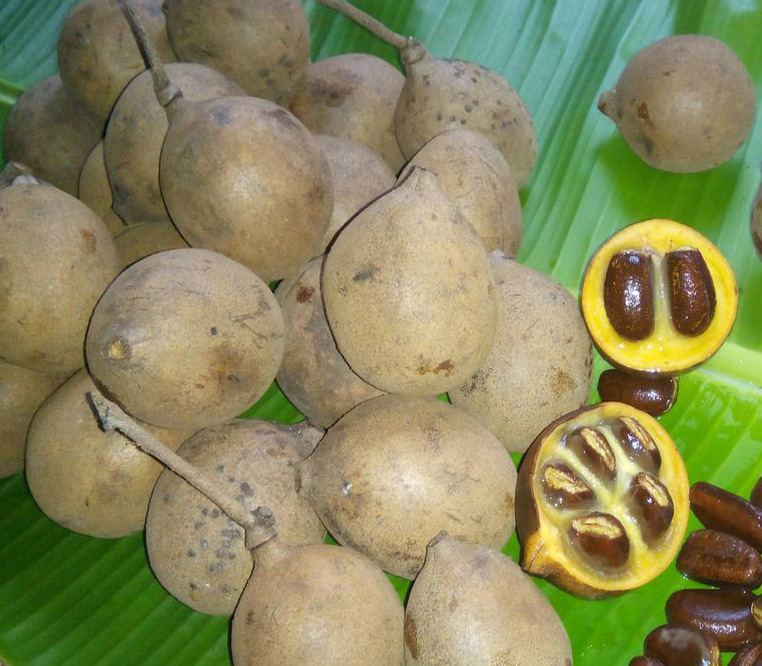 |
Stelechocarpus burahol Kepel |
 |
Xylopia aromatica Monkey Pepper |

